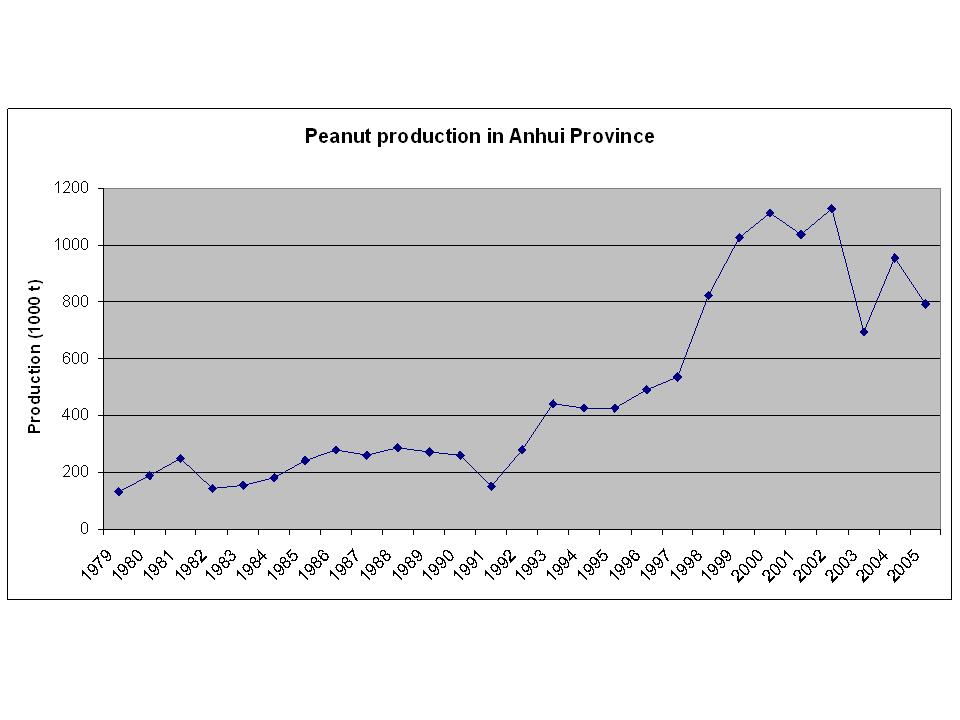Here’s an interesting way of adding value to an agricultural product: take rice, make rice wine, then soak tiger carcasses in it. Not everyone approves.
Flowering trigger uncovered
Some clever genetic manipulation has led scientists to identify the chemical that allows daylength to trigger flowering in plants – all plants, it looks like. It is the protein produced by the gene called Flowering Locus T, or FT. This means that crop beeders will now have a better shot at developing varieties which will flower at different latitudes, useful as climate zones shift due to climate change.
China data
USDA has made available a whole bunch of time-series agricultural data for China, at both national and provincial levels. Truly amazing stuff, some of it going back to 1949. Here’s the trend in peanut production in Anhui province for the past 25 years.

Using native plants
It may be a bit of a stretch for this blog, but I liked a recent Christian Science Monitor article on the increasing use of native plants – at the expense of exotics – for landscaping in some parts of the US. The authors credit more awareness of climate change, and in particular worries about excessive water use in ever more drought-prone areas, for this shift in attitudes.
Welsh pony in trouble?
A long article in icWales, the self-described “national website of Wales,” details the predicament of the local pony breed. Once an important part of everyday rural life – and indeed industrial life, due to their use in coal mines – more recently a children’s trekking pony, there is now limited demand for the breed. Wild herds have thus declined dramatically, no doubt resulting in genetic erosion. Does it matter? A resounding yes echoes around the hills.